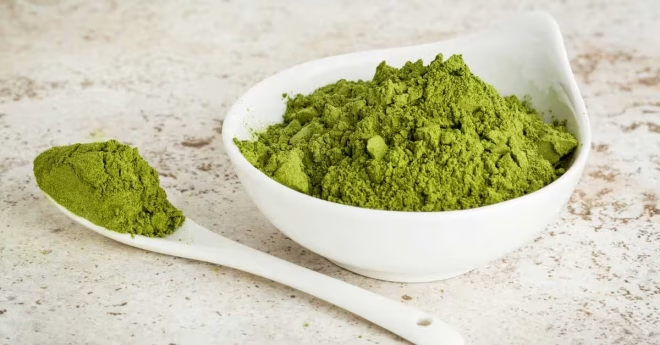
Health Benefits of Moringa
Moringa is a herb that has many health benefits, including reducing the risk of certain conditions such as high blood pressure. Moringa is a plant that has been praised for its health benefits for thousands of years. It is rich in healthy antioxidants and bio-active plant compounds.
Moringa is a very nutritious. Moringa is a large tree native to northern India.
It is known by many names such as drumstick tree, horseradish tree or ben oil tree. Almost all parts of the plant are edible or used as ingredients in herbal medicines.
Moringa leaves are an excellent source of many vitamins and minerals. One cup of fresh leaves (21 g) contains:
- Protein: 2 g
- Vitamin B6: 19% of the RDA
- Vitamin C: 12% of the RDA
- Iron: 11% of the recommended daily intake
- Riboflavin (B2): 11% of the RDA
- Vitamin A (beta-carotene): 9% of the RDA
- Magnesium: 8% of the RDA
In Western countries, dried leaves are sold as a dietary supplement in powder or capsule form.
Pods generally have lower vitamin and mineral content compared to leaves. However, they are rich in vitamin C.
Diets in developing countries sometimes lack vitamins, minerals and proteins. In these countries, Moringa can be a good source of many important nutrients.
But there is a downside: Moringa leaves also contain anti-inflammatory compounds that may reduce mineral and protein absorption. Another thing to keep in mind is that taking moringa in capsules may not provide any significant nutrients. This amount is not worth it compared to the amount you would eat in a healthy diet based on unprocessed foods.

1. Moringa is rich in antioxidants
Antioxidants are compounds that fight free radicals in the body. High levels of free radicals can cause oxidative stress, which is linked to chronic diseases such as heart disease and type 2 diabetes.
Moringa leaves contain many antioxidants. In addition to vitamin C and beta-carotene, they contain:
- Quercetin – This powerful antioxidant may help lower blood pressure.
- Chlorogenic acid – Coffee is also rich in chlorogenic acid, which may help control blood sugar levels after meals.
One study in women found that consuming 1.5 teaspoons (7 grams) of moringa leaf powder daily for three months increased antioxidant levels in the blood.
Moringa leaf extract can also be used as a food preservative. It may extend the shelf life of meat by reducing oxidation.
2. Moringa may reduce blood sugar
High blood sugar can cause serious illness. In fact, this is the main feature of diabetes. Over time, high blood sugar can increase the risk of many serious conditions, including heart disease. Therefore, it is important to keep blood sugar in a healthy state.
Interestingly, many studies have shown that moringa may help reduce diabetes.
However, most of the evidence is based on animal studies. There are only a few human studies available, and most of them are negative.
A study in 30 women found that consuming 1.5 teaspoons (7 grams) of moringa leaf powder daily for three months reduced fasting blood sugar by an average of 13.5%.
Another small study in six diabetic patients found that adding 50 grams of moringa leaves to the diet reduced blood sugar levels by 21%. Scientists believe these effects are due to plant compounds such as isothiocyanates.

3. Moringa may reduce inflammation
Inflammation is the body’s natural response to disease or injury.
This is an important preventive measure, but if it continues for a long time it can turn into a serious health problem. In fact, chronic inflammation is linked to many health problems, including heart disease and cancer.
Many fruits, vegetables, herbs and spices have anti-inflammatory properties. But how much help they will depend on the type and amount of anti-inflammatory properties they have.
Scientists believe that isothiocyanates are the main anti-inflammatory compounds in Moringa leaves, pods, and seeds.
4. Moringa may lower cholesterol
High cholesterol is linked to the risk of heart disease. Fortunately, many plant foods are effective in lowering cholesterol. These include flaxseeds, oats and almonds.
Both animal and human studies suggest that moringa may have beneficial effects on cholesterol.
5. Moringa may prevent arsenic poisoning
Arsenic contamination of food and water is a problem in many parts of the world. Some types of rice may have particularly high levels. Long-term exposure to arsenic can cause health problems over time. For instance, an increased risk of cancer, and heart disease.
